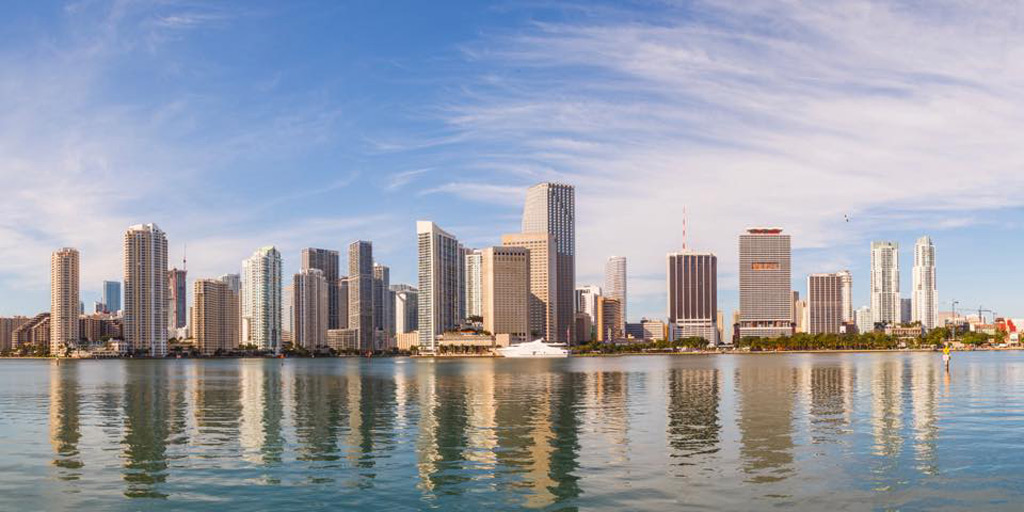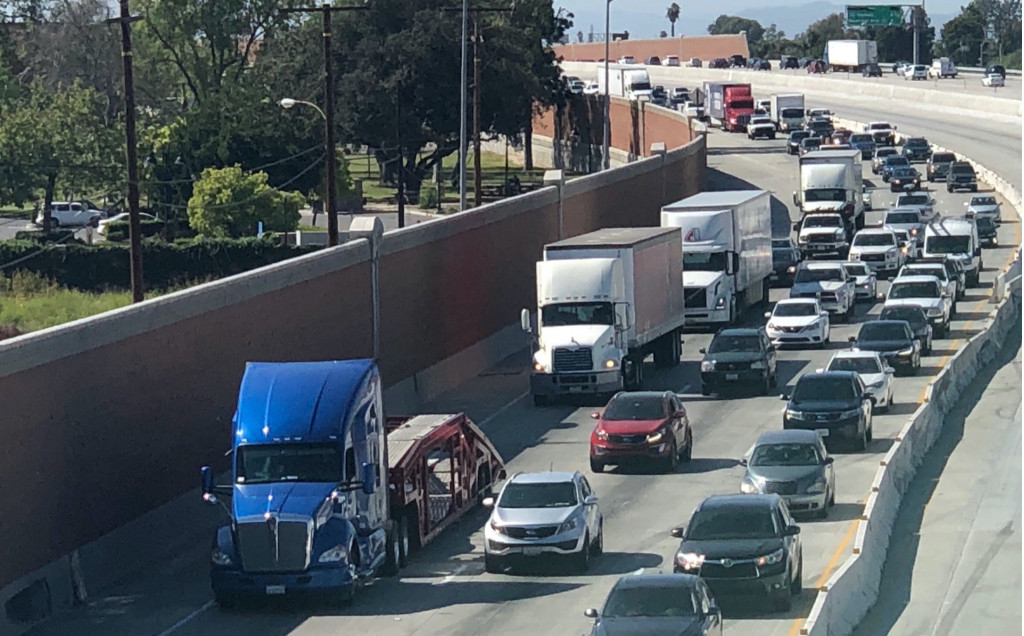Florida lawmakers have produced a bill that would have the state pave its roadways with radioactive waste.
Now on the desk of Gov. Ron DeSantis, HB 1191 could compel the Florida Section of Transportation to review the use of phosphogypsum—a radioactive byproduct of fertilizer production—as a paving materials, in accordance to an NPR report.
The invoice, which is reportedly becoming opposed by conservation groups, sets an April 1, 2024 deadline for Florida’s transportation department to make a recommendation on the use of phosphogypsum. If authorized, the substance would be applied together with other aggregates like crushed stone, gravel, and sand.
Florida is a big producer of fertilizer, and that leaves a lot of phosphogypsum as waste. Phosphorous is an crucial element of fertilizer, assisting vegetation to improve robust roots and rising crop efficiency, in accordance to NPR. To get it, phosphate rock is dissolved in sulfuric acid to make phosphoric acid.

Miami skyline – Graphic by using City of Miami Govt
This frequently employed creation procedure, which dates back again to the 1840s, is not incredibly successful, the report points out. For each and every ton of phosphoric acid made, a lot more than 5 tons of phosphogypsum squander is created. The phosphogypsum is usually remaining in enormous heaps—called “gypstacks”—that can be up to 200 feet superior and span 800 acres. They’ve also been joined to difficulties like sinkholes. Which explains why lawmakers are so eager to make use of the stuff.
Nonetheless, phosphogypsum also has “appreciable portions” of the radioactive factor uranium and other radioactive features produced by way of the organic decay of uranium, according to the EPA. Uranium decay types radium-226, which in turn decays to form radon, a cancer-resulting in radioactive gasoline. These factors are present in the authentic phosphate rock, but the fertilizer output procedure concentrates them, making phosphogypsum far more radioactive than the unique rock, in accordance to the EPA.

Large rigs in targeted traffic
The NPR report cites a fertilizer-sector trade group that promises employing the materials wouldn’t guide to radiation publicity beyond latest EPA limitations, and Chinese researchers that are “optimistic” about the capability of a new recycling procedure to take away radioactive product, with the caveat that more analysis is necessary.
The EPA won’t allow use of phosphogypsum in street construction, a coverage that’s been in position practically constantly for 30 several years (the ban was briefly lifted in the course of the Trump administration). The agency told NPR that Florida will have to use for approval. So whilst road builders have tried some unorthodox elements above the years, they may well not get a opportunity to pave Florida highways with phosphogypsum.

